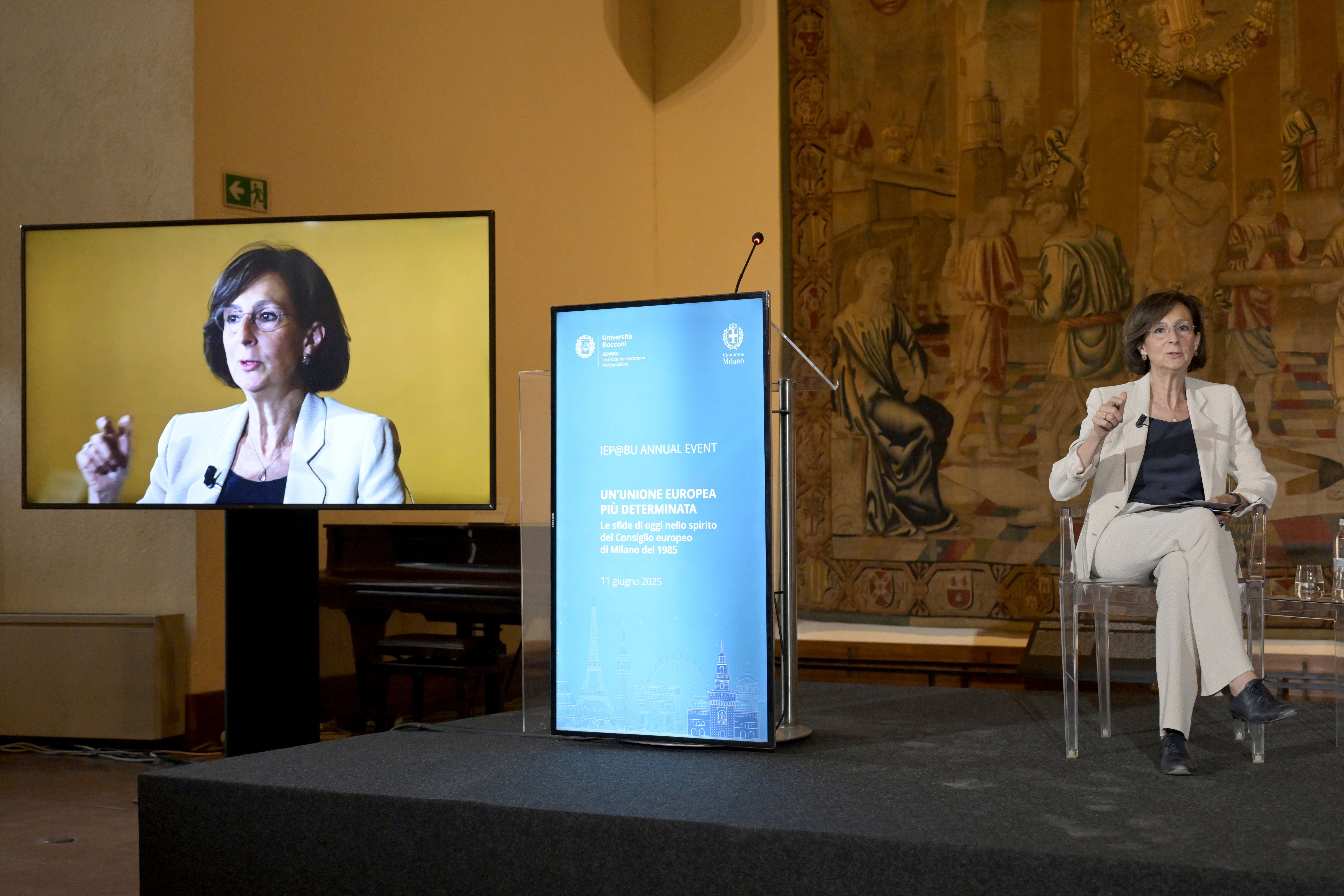Europe as a Place of Pluralism and Not Uniformity
A great legacy of the European Council of Milan is the image of a Europe that does not need to be either unanimous or uniform in order to proceed toward its development, precisely insofar as one can trust one another. A commentary by Marta Cartabia

This contribution by Marta Cartabia was prepared for the debate held during the annual event of the Institute for European Policymaking at Bocconi University, which took place at the Castello Sforzesco on June 11, 2025.
The European Council of Milan of 1985 marks a turning point in the history of European integration. A new beginning.
What was the keystone of success that allowed the political determination of some governments to translate into a concrete result, overcoming in fact a phase of stalemate and immobility that had lasted too long?
Everyone agreed on the final objective: to complete the internal market. The difficulty lay in finding a path that was feasible and acceptable to all actors.
The methodological choices were decisive, from which useful indications can still be drawn today.
The success of the European Council of Milan of 1985 depends largely on having bet on mutual trust. Mutual trust among member states is the foundation upon which the two fundamental pillars of that season of reforms were built: mutual recognition on the economic level and the expansion of majority voting on the political level.
On the economic level, the principle of mutual recognition has allowed goods legally produced in one of the states to be marketed in all other member states, even in the absence of uniform rules.
This principle, which had already been anticipated by the Court of Justice in the Cassis de Dijon judgment of 1979, has been widely used for the completion of the internal market. If the internal market had had to await the complete harmonization of all legal rules, its realization would have been postponed for a long, perhaps indefinite, time.
On the political level, it is well known that a decisive factor of success was determined by the expansion of decision-making areas to a qualified majority, rather than unanimity, established by the Single European Act of 1986.
This turning point marks a path that would be very useful to pursue further even today, in the sectors that have become priorities in today's political agenda. Abandoning the rule of unanimity in favor of a qualified majority means, ultimately, abolishing the veto powers of a single government or a small group of national states that block the decisions of the many. And this can only be done by trusting one another.
Mutual trust on the economic level. Mutual trust on the political level.
A great legacy of the European Council of Milan is the image of a Europe that does not need to be either unanimous or uniform in order to proceed toward its development, precisely insofar as one can trust one another.
Europe is a collective name that has always carried within itself a plurality. Europe was born to be united in diversity. Coexisting with respect to diversity is a sign of mutual trust.
Certainly, mutual trust cannot be taken for granted once and for all. Mutual trust can last over time under one condition: a shared substrate of values that makes us all feel like part of a great European society.
For this reason, in recent decades, all institutions of the Union have placed great emphasis on respect for the values upon which the Union is founded, as set forth in Article 2 of the Treaty: democracy, fundamental rights, rule of law, freedom, human dignity, equality, among others.
When one of the states suffers from democratic decline, or from a decline in respect for the rule of law, or from a compression of spaces of freedom, the entire European construction is affected. Mutual trust is lost, and with it the capacity to progress together. For this reason, these are not only internal, national, or domestic problems, but common problems that European institutions are taking charge of by also developing new constitutional instruments.
Building and maintaining sound democratic institutions, respect for human rights, and guarantees of the rule of law within member states is not only a national question, but a European problem.
IEP@BU does not express opinions of its own. The opinions expressed in this publication are those of the authors. Any errors or omissions are the responsibility of the authors.
